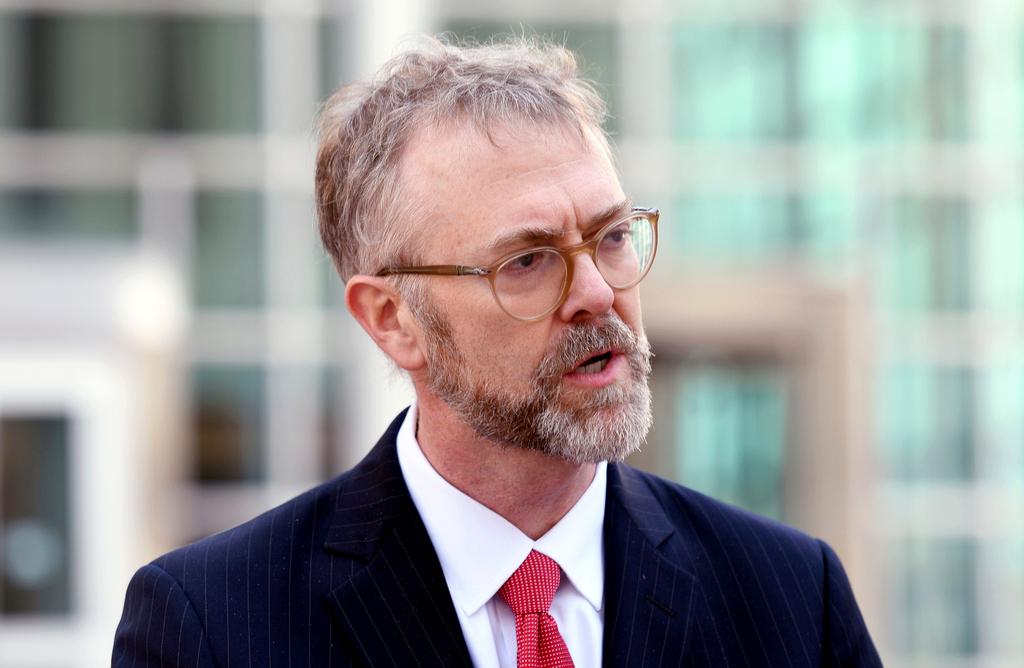
Ballots went out Friday for the Colorado Springs municipal election. Twenty five people are running for four elected positions. The mayor's race is generating hundreds of thousands of dollars in campaign donations. KRCC's Andrea Chalfin sat down with Sixty35 senior reporter Pam Zubeck to talk about how finances are shaking out.
This transcript has been edited for clarity.
Andrea Chalfin: Pam, you follow campaign finance every election. What are things looking like this year?
Pam Zubeck: There's a lot of money in this race, as there well should be because it's the first time in eight years that we have an open seat for mayor. So there's a lot of competition. There are 12 candidates running, with five or six that have significant sums. And there's a lot at stake in this election as well, so there's a lot of money that will pour into this election.
Chalfin: And who are you seeing that's raising the most money?
Zubeck: So far? The sitting at-large City Councilman Wayne Williams has raised the most, followed closely by Yemi Mobolade. And their sources are very different.
Wayne is getting a lot of development money. He got the endorsement from the Housing and Building Association of Colorado Springs, commonly called HBA. That came with a $50,000 donation, and that wouldn't preclude a subsequent donation from HBA. He also is going to be supported by some committees that don't coordinate with his election that are going to be funded, people believe, by development interests.
Whereas, Yemi, who is a businessman and former pastor, kind of an everyman candidate, he has the most unique donors of anyone in the race. And by a wide margin, like over 500 different donors have given to him, whereas the others would be in the 80-100, somewhere in that vicinity.
So then beyond that, we have former County Commissioner Sallie Clark has a lot of money coming in from certain developers, and Andrew Dalby, who is a businessman and a newcomer to politics who has put a bunch of his own money into the race, as has County Commissioner, Longinos Gonzalez, Jr.
Unlike federal elections, there’s no limit on how much people can give in Colorado Springs’ elections.
Chalfin: When you're looking over these reports so far, what has surprised you?
Zubeck: It surprised me that Yemi has used a strategy I've not seen before in fundraising, which is to engage donors on a payment plan, if you will. You see people giving regular, once-a-month donations of a certain amount, but it provides a steady stream of campaign money coming in. I've never seen a local candidate do that. But of course, it's working because he's raised a lot of money.
One thing that I might mention that I think is pertinent in these local elections is that there's no limit in our local elections for how much money someone can give, and that's unlike federal election law that limits how much a specific donor can give.
Chalfin: The campaign finance reports are available on the city's website, but how much information can you actually glean from them?
Zubeck: Well there's no running totals given. So every time a new set of reports drops, you have to have been prepared yourself with some kind of spreadsheet, or a legal pad or, you know, whatever your method is, to then pick up the previous totals and add the new ones in. So, there's never a running total. That's one issue. However, it's not rocket science to do the math. The city does require all donors to be listed by name and occupation and how much they give, to include the aggregate total.
The other part of these reports is that candidates have to disclose when they loan their own campaign money. So you always go to the loan forms to see how much money they've invested themselves. And if you're a candidate and you want to give money to your campaign, you don't have to make a loan. You can just give the money outright. If it's a loan, you can use other campaign donations to pay yourself back later.
Chalfin: Who are you seeing in terms of what special interest groups are supporting whom?
Zubeck: In past elections there would be a slate of candidates that would be supported by developers and builders and the whole industry. But not this election, because we have this spoiler, if you will, that is called the water ordinance. That has created a schism among developers.
It split the developers because we have a lot of high-roller developers, if you will, that are sitting on land that are not part of the city right now. They want to annex. But that water ordinance, which also by the way, carried another provision relating to contiguity with the city's borders, and so that's going to be a problem for some of these outlying parcels.
So you have those developers who are at odds with the developers within the city that are sitting on property ready to develop or they want to develop. So they're, you know, they're choosing different candidates, and that's unusual.
Chalfin: What about the city council election?
Zubeck: The rule of thumb would be that a successful city council race might cost, I don't know, 25, 30,000, 50,000 [dollars] maybe. But these candidates, unless they are endorsed by big money groups such as the HBA, they're not going to be raising that much money. Some of them have 8,000 or 9,000. That's a pretty good sum if you haven't gotten a big endorsement such as from Pikes Peak Realtors or the HBA.
Chalfin: We have several more filing periods prior to the election. What are you expecting to see?
Zubeck: The next ones are due March 15th. The last cycle, we saw a pretty good amount of money pouring in. I think this next cycle, you're going to see a lot of money pouring in.
One of the sources is going to be, well, it won't even be reported on the candidates reports. It'll be reported on these campaign committees that are set up. That's where the big money is going to fall because it's committees that are fueled by what's considered dark money.
It's called dark money because, well, they follow rules, but the rules don't require them to disclose the source of the money. And so that's where I expect to see a lot of money come in. Potentially, well, certainly tens of thousands could be hundreds of thousands.
Pam Zubeck is a senior reporter for Sixty35.








